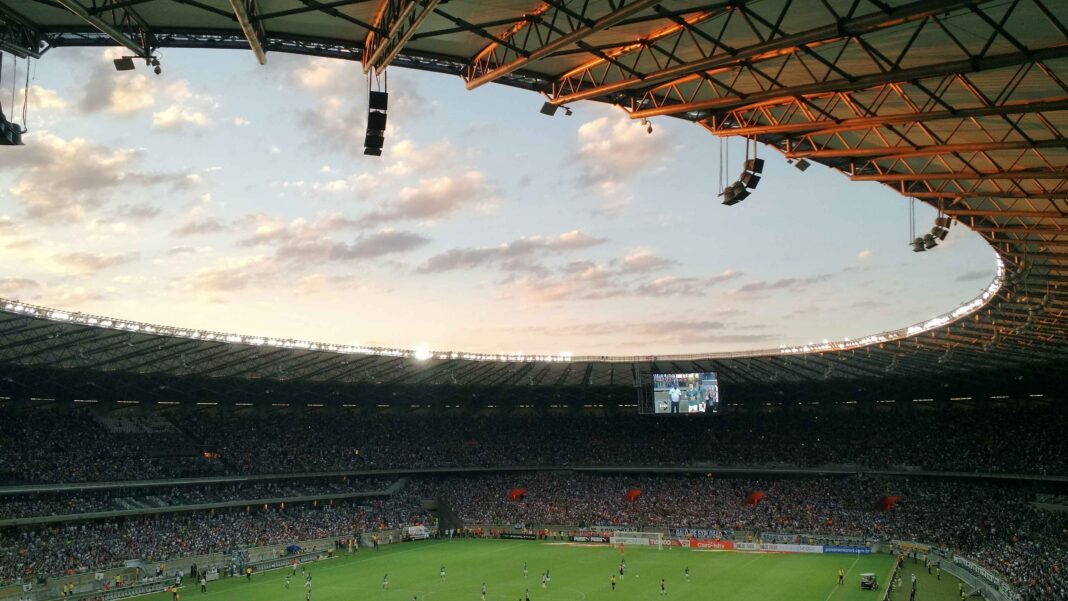The Premier League season has kicked off with a new set of rule changes that are already making the new reality known. In Tottenham’s opener against Burnley, referee Michael Oliver penalised Martin Dubravka for holding the ball too long, awarding Spurs a corner under the new eight-second rule for goalkeepers. This “double-down” on time-wasting is part of a much bigger effort to keep games flowing and restore rhythm to matches. It is the beginning of a season where referees are expected to apply the new rules with more consistency.
The Goal is Faster Football on The Pitch
The push for speed and flow is not unique to football. The new Premier League rules for the 2025-26 season focus heavily on speeding up the game and reducing delays. These changes are designed to create a faster, more continuous flow of play and a better viewing experience for fans. It’s not new to sports.
For example, in the Australian Football League, rules are constantly updated to minimise time-wasting and improve spectator experience, such as penalising players for feigning a handball or taking too long for set shots on goal, as well as introducing time warnings for certain actions. The NBA implemented a shot clock and adjusted game timing and timeouts to keep the pace high and minimise disruption, driven by a desire to improve spectator engagement and keep the action moving.
In esports, a similar focus on the flow of the game and the viewer experience is critical. Esports titles and leagues aim to keep matches engaging and fast-paced to retain audience interest. Certain esports modes or rules are designed to accelerate the gaming sessions. This has a knock-on effect in sports betting.
For example, several of the top UK esports bookmakers offer competitive odds and in-play betting options on various esports tournaments. In-play betting relies heavily on the real-time progression of the match, with odds constantly updating based on what happens in the game. This also extends to football betting, where delays such as long pauses, extended VAR reviews, or player-referee confrontations can slow down the flow and disrupt bettor engagement and timing.
What Are the New Rules?
The eight-second goalkeeper rule is probably one of the most visible changes. For years, keepers have been able to slow down the game with little consequence, despite an older six-second limit. Now, with clear guidance, referees can punish delays. If a keeper holds the ball longer than eight seconds, possession can switch hands with a corner. The result is faster transitions and more pressure on teams to think quickly in defence.
Referees have also been told to crack down on surrounding officials. Only captains are allowed to approach referees to question decisions. If the captain is in goal, the manager must nominate another outfield player before kick-off. This aims to reduce scenarios where half a team crowds around an official, which slows down the game and intensifies tension. It basically places more responsibility on captains to lead conversations, while giving referees the space to manage matches more effectively.
Penalty kicks also carry new conditions. Retakes will now only be ordered if a kicker’s double movement is judged unintentional. A deliberate double touch, such as feinting before striking, will result in an indirect free-kick awarded to the defending side. This discourages gamesmanship and demands clarity in technique. Strikers are being forced to train with extra precision, knowing hesitation may cost their team a scoring chance.
Set Pieces Under Scrutiny
Another major focus this year is holding during set pieces. Defenders have long used arms and grappling to contain attackers inside the penalty area. Now, referees are instructed to punish clear use of both arms or prolonged obstruction. Despite negativity around VARs, these incidents will be reviewed and penalised more consistently via VAR support. Coaches expect more penalties to be awarded as a result, shifting emphasis to cleaner defending and smarter marking.
This could lead to more goals from corners and free-kicks, altering how teams prepare in training. Attackers may take bolder runs, knowing referees will protect their space more closely. Defenders, on the other hand, must refine body positioning without relying on shirt pulls or holds. Managers are already discussing the balance between aggressive defending and risking spot-kicks under the stricter interpretation.
Technology Shaping Decisions
Technology is also playing a big role in the new season. Semi-automated offside is being rolled out across all matches, with sensors and camera tracking allowing decisions to be relayed to referees more quickly. Gone are the long pauses as assistants weigh up tight calls. This system provides faster, clearer outcomes that both players and spectators can understand.
There is also talk of referee-cams in selected trial matches. The idea is to let supporters see decisions from the referee’s viewpoint. While still in testing, such footage could add transparency and help fans grasp why fouls or cards are given. It remains to be seen whether this becomes a permanent fixture, but the conversation reflects the league’s effort to keep decision-making open to scrutiny.
Even the match ball has changed, with Puma taking over from Nike as an official supplier. While subtle, this matters. Players will notice shifts in weight and feel, which can affect passing, shooting, and long balls. The change highlights how rules extend beyond refereeing to the equipment used each week. Small differences can ripple through how teams prepare and perform.
Adjustments for Players and Coaches
Clubs are adapting to the new environment. Goalkeepers face immediate pressure, penalty takers are spending longer practising clean, and strikers are refining their routines to avoid being punished. The season promises more free-flowing games but also more responsibility on players to respect referees’ authority. The culture of the Premier League is shifting, and how well teams adjust may decide not just individual matches but the shape of the league table itself.





